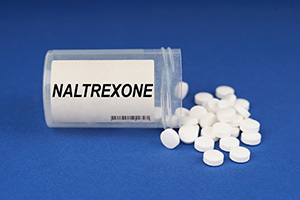
At Tulsi Wellness Club in San Diego, our functional medicine doctors are dedicated to exploring innovative treatments to support your health and well-being. One promising option for managing rheumatoid arthritis (RA) is Low Dose Naltrexone (LDN). In this article, we will delve into what Low Dose Naltrexone is, how it is administered, and how it may benefit individuals with rheumatoid arthritis.
What is Low Dose Naltrexone?
Low Dose Naltrexone (LDN) is a lower-dose variant of the medication Naltrexone, which is commonly used at higher doses to treat opioid addiction. At standard doses, Naltrexone blocks opioid receptors in the brain, helping to reduce cravings and withdrawal symptoms. However, when administered in much smaller doses, typically between 1 to 5 milligrams, it is used off-label for various conditions, including autoimmune disorders like rheumatoid arthritis.
The therapeutic effects of LDN at low doses differ from those at higher doses. LDN is believed to work by temporarily blocking opioid receptors, leading to an increase in the body's production of endorphins—natural compounds that help regulate pain, mood, and immune function.
How is Low Dose Naltrexone Given?
Low Dose Naltrexone is usually prescribed in the form of a daily oral tablet. The typical starting dose ranges from 1 to 5 milligrams, with adjustments made based on individual needs and response to the medication. At Tulsi Wellness Club, we work closely with each patient to determine the most appropriate dosage and ensure optimal results.
To minimize potential side effects and enhance efficacy, LDN is often taken at bedtime. This timing helps align the medication with the body's natural circadian rhythms and can reduce the likelihood of experiencing side effects like vivid dreams or insomnia.
How Does Low Dose Naltrexone Work for Rheumatoid Arthritis?
Rheumatoid arthritis is a chronic autoimmune condition characterized by joint inflammation, pain, and stiffness. The exact cause of RA is unknown, but it involves an overactive immune response that attacks the body’s own tissues.
Here’s how Low Dose Naltrexone may offer benefits for managing rheumatoid arthritis:
-
Immune System Modulation: LDN is thought to modulate the immune system by increasing endorphin levels, which can help regulate the immune response. For individuals with RA, this modulation may reduce inflammation and help alleviate symptoms.
-
Pain Reduction: The increased endorphin production associated with LDN may act as a natural pain reliever. Endorphins are known for their pain-relieving properties, which can help reduce the discomfort and stiffness often experienced in RA.
-
Reduction of Inflammation: By influencing immune function and endorphin levels, LDN may help to decrease inflammation in the joints. Reduced inflammation can lead to fewer flare-ups and improved overall joint function.
-
Improved Quality of Life: Many patients with RA report improvements in their overall well-being and quality of life while using LDN. Enhanced mood and reduced pain can contribute to a better quality of life and improved ability to manage daily activities.
What to Expect on Low Dose Naltrexone
When starting Low Dose Naltrexone for rheumatoid arthritis, it’s important to set realistic expectations. While some individuals may experience significant relief within a few weeks, others may take several months to notice the full benefits. Consistent use and regular follow-up with our team are crucial for monitoring progress and making any necessary adjustments to the treatment plan.
Side effects from LDN are generally mild and may include temporary digestive changes or sleep disturbances. These effects often subside as your body adjusts to the medication.
Conclusion
Low Dose Naltrexone offers a promising approach for managing rheumatoid arthritis, providing potential benefits through immune modulation, pain reduction, and inflammation control. At Tulsi Wellness Club, we are committed to offering personalized care and support to help you explore this and other innovative treatments. If you’re considering LDN for RA or have any questions about how it might fit into your treatment plan, please contact us. Our team is here to provide the guidance and support you need to achieve better health and enhance your quality of life.
Dr. Natasha MacLeay
Contact Me



